Supporting a loved one on their journey to sobriety is a profound act of compassion and understanding. As a supportive presence, your role is vital in creating a nurturing environment for their healing. Here’s how you can effectively support them while also understanding the resources available to aid in their recovery journey.
Understanding Addiction and Recovery
Addiction is a complex disease that affects the brain, behavior, and overall health. Whether your loved one is seeking help for alcohol, drugs, or opiates, professional treatment is often necessary to address the root causes of addiction and develop coping mechanisms.
Programs such as Addiction Treatment Programs, Partial Hospitalization Programs (PHP), Intensive Outpatient Programs (IOP), and Outpatient Programs (OP) offer comprehensive care tailored to individual needs. These programs combine medical support, therapy, and skills training to help individuals build a foundation for lasting sobriety.
Understanding the Different Levels of Care
Addiction Treatment Programs offer various levels of care, each tailored to meet specific needs. For those in the early stages of recovery, a Partial Hospitalization Program (PHP) provides an intensive level of treatment without requiring a full-time residential stay. It bridges the gap between inpatient care and less intensive options, allowing individuals to focus on their recovery during the day while returning home at night.
An Intensive Outpatient Program (IOP) is another effective approach for those who have completed PHP or inpatient treatment. This option enables participants to maintain work or school commitments while attending therapy sessions multiple times a week. For those further along in their recovery, an Outpatient Program provides a flexible structure with fewer weekly sessions, ideal for maintaining progress while integrating back into everyday life.
Encouraging your loved one to consider a Sober Living Program can also be transformative. These programs provide a structured, substance-free environment that supports the transition to independent living. They foster accountability, peer support, and the development of healthy routines, which are essential for long-term sobriety.
Ways to Support a Loved One in Recovery
1. Educate Yourself About Addiction
Understanding addiction can help you empathize with your loved one’s struggles. Learn about the nature of addiction, its impact on mental and physical health, and the different types of treatments available, such as:
- Alcohol Rehab Treatment
- Drug Rehab Treatment
- Opiate Rehab Treatment
- Meth Rehab Treatment
2. Encourage Professional Treatment
The first step in recovery is often seeking professional help. Encourage your loved one to explore options like those offered at River Rocks Recovery, an Addiction Treatment Center in Ohio. Our evidence-based programs include:
- Partial Hospitalization Program (PHP): Structured, intensive daytime treatment.
- Intensive Outpatient Program (IOP): Flexible care that allows for continued work or school.
- Outpatient Program (OP): Support for ongoing recovery in a less intensive setting.
- Addiction Therapy Program: Includes individual, group, and family therapy sessions.
3. Be Patient and Non-Judgmental
Recovery is a long-term process with potential setbacks. Practice patience and avoid judging your loved one for relapses or struggles. Offer encouragement and remind them of their progress.
4. Establish Healthy Boundaries
Supporting someone doesn’t mean neglecting your own needs. Set boundaries to protect your emotional and physical health. This might include saying no to enabling behaviors or ensuring you take time for self-care.
5. Encourage Accountability
Recovery requires individuals to take responsibility for their actions and choices. Support your loved one by encouraging attendance in treatment programs and aftercare services, such as relapse prevention and sober living arrangements.
6. Be Involved in Their Recovery
Many recovery programs, including those at River Rocks Recovery, involve family therapy as part of treatment. Participating in these sessions can help improve communication and rebuild trust.
Navigating the Challenges of Supporting a Loved One
Dealing with Emotional Stress
It’s natural to feel overwhelmed when a loved one is in recovery. Seek support for yourself through counseling or support groups designed for family members of individuals in recovery.
Understanding Relapse
Relapse is often a part of the recovery process and not a sign of failure. Encourage your loved one to return to their treatment program if they relapse and reinforce the idea that setbacks are opportunities to learn and grow.
Celebrating Milestones
Celebrate your loved one’s achievements, no matter how small. Whether it’s completing a month in an Alcohol Rehab Treatment program or staying sober for a week, acknowledging their progress reinforces positive behavior.
Finding the Right Addiction Treatment Center
Choosing the right treatment center is crucial. If you’re in Ohio, consider the exceptional care offered at River Rocks Recovery. This Addiction Treatment Center in Ohio serves as a sanctuary of healing, hope, and transformation. Their programs are designed to cater to the diverse needs of individuals navigating recovery from substance use and mental health challenges. Whether it’s a PHP, IOP, outpatient care, or a sober living environment, their compassionate team utilizes evidence-based therapies and holistic approaches to guide individuals toward lasting recovery.
How to Be a Supportive Ally
Communication is key. Speak to your loved one with kindness and without judgment. Express your concern and willingness to help, but avoid being overly critical or pushy. Recovery is their journey, and while your support is crucial, it’s important to allow them the autonomy to make decisions about their care.
Set healthy boundaries for both yourself and your loved one. Enabling behavior, such as covering up for them or taking on responsibilities they should handle, can hinder their progress. Instead, encourage accountability while showing unwavering encouragement.
Leveraging Professional Support
Recovery is a team effort, and professional care plays a central role in ensuring success. Programs like those offered at River Rocks Recovery address not only substance use but also co-occurring mental health conditions, providing comprehensive support for individuals on their recovery journey. Their Addiction Treatment Programs incorporate therapy, medical care, and peer support, creating a well-rounded approach to healing.
The serene environment at River Rocks Recovery enhances the therapeutic process. Their empathetic community fosters personal growth, helping individuals rediscover their strengths and build resilience. Whether it’s a Partial Hospitalization Program for intensive care, an Intensive Outpatient Program for structured flexibility, or a Sober Living Program for transitional support, River Rocks Recovery ensures a strong foundation for enduring well-being.
Encouraging a Healthy Lifestyle
Help them reconnect with hobbies or discover new interests that bring joy and fulfillment. A sense of purpose and achievement can act as a powerful motivator during recovery. Additionally, participating in support groups or community activities can help them build a network of understanding peers who share similar experiences.
The Importance of Self-Care for Supporters
While supporting a loved one, it’s essential to prioritize your own well-being. The journey can be emotionally taxing, and neglecting self-care can lead to burnout. Practicing self-compassion ensures you can continue to provide the love and strength your loved one needs.
At River Rocks Recovery, the journey to recovery is more than just overcoming addiction—it’s about rediscovering hope, breaking down stigma, and embracing a life of comprehensive well-being. With the right treatment, a nurturing community, and unwavering support from loved ones, recovery becomes not just a possibility but a reality.
By understanding the resources available, such as a trusted Addiction Treatment Center in Ohio, and adopting a compassionate, informed approach, you can make a significant difference in your loved one’s recovery journey. Together, you can navigate this transformative path toward sobriety and a brighter future.
The Role of River Rocks Recovery in Supporting Your Loved One
At River Rocks Recovery, we offer a range of specialized services to support individuals and their families throughout the recovery journey. Our programs are designed to address the unique challenges of addiction recovery, including:
As an Addiction Treatment Center in Ohio, we provide compassionate care that combines evidence-based therapies, holistic approaches, and community support. Our team works with individuals and their families to create personalized treatment plans that include Addiction Therapy Programs, group counseling, and aftercare support.
Final Thoughts
Supporting a loved one on their journey to sobriety is both rewarding and challenging. Your encouragement and understanding can make a significant difference in their recovery. Remember, you don’t have to navigate this alone. At River Rocks Recovery, we’re here to support both you and your loved one every step of the way.
If you or someone you care about is ready to begin the path to recovery, contact us today to learn more about our comprehensive treatment options. Together, we can build a brighter, sober future. Take the first step and contact us today at (888) 905-6281.
FAQ on Supporting a Loved One
How can I support a loved one seeking addiction treatment?
Educate yourself about addiction, encourage professional treatment, and participate in family therapy sessions. Programs like Partial Hospitalization Programs (PHP), Intensive Outpatient Programs (IOP), and Outpatient Programs (OP) can help.
What is the best way to encourage someone to seek professional help?
Open a non-judgmental conversation, express your concerns with compassion, and provide information about treatment options, such as Addiction Therapy Programs or Alcohol Rehab Treatment.
How do I handle setbacks like relapse?
Understand that relapse is often a part of recovery. Encourage your loved one to re-engage with their treatment program and view setbacks as opportunities for growth.
What treatment options are available at River Rocks Recovery?
River Rocks Recovery offers a range of services, including Partial Hospitalization Programs, Intensive Outpatient Programs, Outpatient Programs, Addiction Therapy Programs, Alcohol Rehab Treatment, Drug Rehab Treatment, Opiate Rehab Treatment, and Meth Rehab Treatment.
How can I take care of myself while supporting a loved one?
Set healthy boundaries, seek counseling or join support groups for families of individuals in recovery, and make time for self-care.







































